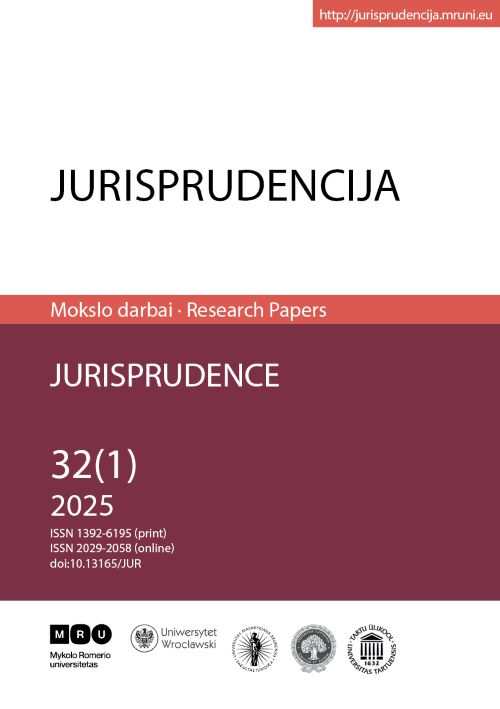JUDICIAL REVIEW DURING ADMINISTRATIVE PROCEDURE
##plugins.themes.bootstrap3.article.main##
Abstract
The European Court of Human Rights (hereinafter – ECtHR) has issued a decision in the case of UAB Kesko Senukai Lithuania v. Lithuania. It touched upon issues such as procedural document of an interim nature, the right to private life, the inviolability of the home, the secrecy of correspondence, etc. The case raised certain issues related to the institutions performing executive administrative activities, the procedures they carry out and the role of the judiciary during the administrative procedure, i.e. before the public administration entity adopts an administrative decision. Is it appropriate for the judiciary to intervene in an investigation that has not yet been completed? Doesn’t this hinder, delay, and render the administrative procedure and the activities of the public administration entity inefficient in general? Does a private entity, by going to court before the investigation is complete, not put pressure on a public institution that is supposed to protect the public interest or at least seek a balance between private and public interest? Are rights such as the confidentiality of correspondence above the public interest? More questions arise, for example, whether the principles of good administration apply to the administrative procedure or only to the final decision-making? Is the possibility of judicial review during the procedure a necessary condition for good administration? In other words, the article seeks to answer whether judicial review is possible and necessary during the administrative procedure.
Keywords: state, separation of powers, public administration, judicial review, administrative procedure, ECtHR, procedural document of an interim nature.
##plugins.themes.bootstrap3.article.details##

This work is licensed under a Creative Commons Attribution 4.0 International License.
This is an open-access journal, which means that all content is freely available without charge to the user or their institution. Users are allowed to read, download, copy, distribute, print, search, or link to the full texts of the articles in this journal without asking prior permission from the publisher or the author. This follows the BOAI definition of open access. Authors contributing to Jurisprudence agree to publish their articles under a Creative Commons Attribution 4.0 International Public (CC BY) License (applicable from 2025).
![]() Authors retain copyright of their work, with first publication rights granted to the Association for Learning Technology.
Authors retain copyright of their work, with first publication rights granted to the Association for Learning Technology.
Please see Copyright and Licence Agreement for further details.







